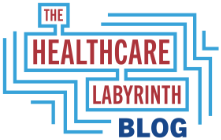Looking for any angle to take the focus off his age and the economy overall, President Joe Biden and Democrats are now focusing on healthcare in the presidential election. In my mind, it is a very good strategy.
As I have said in previous blogs, my Republican Party has a compassion gap when it comes to healthcare. Republicans have not formulated any real agenda on healthcare reform. Most tend to distance themselves from any talk of reform. More right-wing elements talk actively of repealing the Affordable Care Act (ACA), which has helped in the neighborhood of forty million Americans (not counting those with pre-existing conditions and on their parents’ policies until age 26.)
Whatever you think of some of the Democrats’ ideas, the party has actively embraced healthcare reform. Some ideas I clearly hate, such as Medicare for All. But others, like drug price reform and anti-trust activities, make a great deal of sense from both a policy and political standpoint.
In a recent column, Kaiser Family Foundation (KFF) President and CEO Drew Altman echoed my views in recent blogs by saying that, while healthcare is not at the top of election issues, it could very well decide the election. How so? First, healthcare affordability is part of the economic concerns of Americans, which ranks very high as an issue for November. In addition, because of the electoral college, the election could be decided in a small number of swing states. Healthcare positions could impact these voters in more moderate states and counties.
What has Biden done to bring healthcare issues back in the limelight?
Exchanges and Medicaid
Throughout his tenure as president, he has driven Exchange enrollment and embraced Medicaid expansion. Exchange enrollment has reached over twenty-one million due to marketing, outreach, and expanded premium subsidies through 2025. This certainly has positive impact for him. In addition, he will call for a permanent increase in the expanded subsidies at the State of the Union tonight and ask for a new program to cover those in the so-called coverage gap in the ten states that have not expanded Medicaid.
He has also scored some Medicaid expansion wins during his tenure as well as prioritized expansions to certain population groups (e.g., children and pregnant women). On the negative side, Medicaid redeterminations came back in April. Almost eighteen million lost enrollment during the process, although some gained it back over time. Overall, Medicaid rolls have dropped by about ten million since redetermination of eligibility returned.
Medicare Advantage
While I disagree with his approach, he has embraced reining in prior authorization in Medicare Advantage (MA). It will prove disastrous for MA plans, but likely will prove politically popular in the short term (that is until benefits begin to erode). He, too, backed a risk adjustment data validation (RADV) provision and introduced risk adjustment rate changes that seek to deal with perceived overpayments in the industry. Both are politically popular but questionable ideas from a policy standpoint. Otherwise, he has been friendly to the popular program.
Drug price reform
On the drug front, he introduced and fought for Medicare drug price negotiations. The first ten drugs are now in negotiations and prices will be set for 2026. Polls show the move resonates well with votes from all parties and independents. He also won cost-sharing reductions in Medicare Part D, including on insulin costs. In his Thursday State of the Union (March 7), he will ask for the swift expansion of Medicare drug price negotiations (going to 50 drugs per year), capping commercial product drug cost-sharing at $2,000 per year, and extending inflation caps and rebates to the commercial world as well. Even as a Republican, I wholeheartedly endorse the drug price reforms. In truth, Donald Trump advocated similar policies in his tenure.
Anti-trust and competition
Recently, Biden has gone all in on healthcare anti-trust. He issued an executive order related to strengthening anti-trust activities. Biden’s view is that consolidation in the industry, whether health plans or providers, has driven price up and quality down. His Federal Trade Commission and Department of Justice have been much more active on provider and hospital consolidation. We expect to see even more here in 2024.
Just this week, the administration issued a request for information (ROI) and investigation of private equity firms’ role in the healthcare industry, arguing these firms take excessive profit and hurt quality and patient care.
Conclusion
Again, I don’t agree with everything Biden has done on the healthcare front, but the focus is a wise political move. The only thing you hear from the GOP is saber-rattling on repealing the ACA and its defense of Big Pharma. The GOP loses credibility as Biden reaps the rewards on healthcare issues. While Biden is down in almost all swing states right now, healthcare could be the difference in toss-up states like Wisconsin, Pennsylvania, Arizona, Michigan, Georgia, North Carolina, and Nevada. It could come down to certain counties and neighborhoods where healthcare issues could resonate and be the deciding factor. The GOP needs a real healthcare agenda.
Additional reading
My previous blogs:
Other articles:
https://www.politico.com/news/2024/03/04/biden-health-care-task-force-inflation-00144713
#healthcare #healthcarereform #exchanges #aca #obamabcare #medicaid #medicare #pdp #partd #medicareadvantage #ira #drugpricing #brandrugmakers #antitrust #privatequityfirms #election2024 #biden #trump #democrats #republicans #gop #providers #hospitals
— Marc S. Ryan





